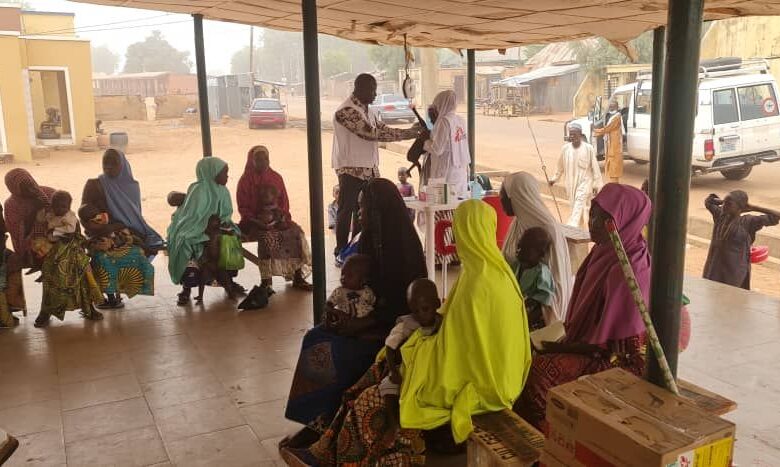MSF Begins Intervention To Stop Infant Mortality In Northwest Nigeria’s Kebbi State
A new initiative by MSF is aiming to reduce childhood mortality in Kebbi State, Northwest Nigeria, though it is already active in Karaye ward in Maiyama Local Government Area of the state.

Doctors Without Borders/Médecins Sans Frontières (MSF) has launched a programme to provide support for children in Kebbi State, Northwest Nigeria against high levels of malnutrition and easily treatable disease during the hunger gap period that runs from Jul. to Sept.
The project is carried out in coordination with Kebbi State Ministry of Health, aimed at stopping children from dying by ensuring early access to treatment for the most common and deadly diseases and ensuring timely availability of treatment for malnutrition during the period.
“Infant mortality rates in Kebbi State are driven to a significant extent by malnutrition during the annual hunger gap and by high incidence of easily treatable childhood diseases,” Shaukat Muttaqi, MSF Head of Mission, said in a statement on Tuesday, April 19.
The project is already active in Karaye ward, Maiyama Local Government Area of the state which houses a 10-bed inpatient malnutrition stabilisation centre, and two outpatient therapeutic feeding programmes.
According to the organisation, the first patients have already begun receiving treatment, with ITFC 17 patients hospitalised in total, 10 discharged and enrolled in ATFC for severe malnutrition. In addition, at least 72 patients enrolled in the outpatient feeding programme that ran through March 13 to 29.
The medical group said its team recently completed a rapid nutrition assessment in the area of Karaye ward, Maiyama LGA with a sample size of more than 400 children and found 8.9 per cent of children between six and 59 months were malnourished, while 0.4 per cent were severely malnourished.
Although malnutrition is a recurrent, chronic crisis in Nigeria that especially affects children under five during the lean period, its reoccurrence in Kebbi State is a disturbing trend.
In Kebbi State, childhood mortality was the highest and well above the national average, according to the Nigerian Demographic and Health Survey in 2018.

Malnutrition, malaria, pneumonia, and diarrhea are among the key contributors to childhood mortality in the state.
There are concerns that other health threats such as recent outbreaks of both measles and cholera, and limited access to healthcare could further exacerbate the vulnerability of children.
By providing early access to medical care, the medical charity said, it hoped to significantly reduce overall infant mortality in the project area.
MSF will add a community-based healthcare programme for malaria, pneumonia, and diarrhea, it said.
Moreover, asides from the focus on paediatric health, MSF will work to address other pressing health needs in the state, including collaborating technical support to other health structures to support preparedness for influxes of injured or wounded patients, outbreaks of infectious diseases, and responding to the needs of displaced populations.
This, Jaafar Mohammed, Kebbi State Commissioner for Health said, would create a quality relationship in terms of strengthening the delivery of healthcare to have better outcomes and quality of care for patients.
“We want to appreciate this partnership which we expect will lead to better outcomes and good progress toward our shared objectives to improve the health and nutrition status of our communities,” Mohammed said.
In a similar gesture, MSF has been stepping up malnutrition screening in Katsina state, and providing children with swift treatment to prevent permanent damage.
Support Our Journalism
There are millions of ordinary people affected by conflict in Africa whose stories are missing in the mainstream media. HumAngle is determined to tell those challenging and under-reported stories, hoping that the people impacted by these conflicts will find the safety and security they deserve.
To ensure that we continue to provide public service coverage, we have a small favour to ask you. We want you to be part of our journalistic endeavour by contributing a token to us.
Your donation will further promote a robust, free, and independent media.
Donate HereStay Closer To The Stories That Matter




